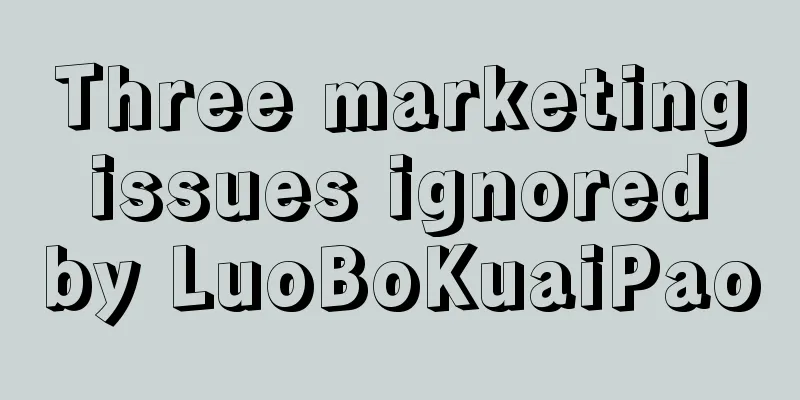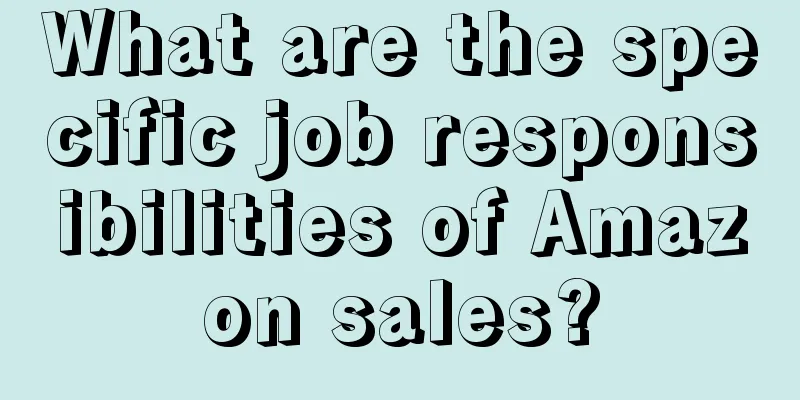Three marketing issues ignored by LuoBoKuaiPao

Recently, the driverless taxi - Luobo Kuaipao started trial operation in Wuhan, which triggered resistance from online car-hailing companies, taxi drivers and even the general public (except those who wanted to get a bargain). From my personal observation, the new product launch this time, whether it is the brand name, the timing of the launch and the product positioning, has more or less some inconsiderate aspects, such as: 1. The brand name should not be too randomAlthough radish is the transliteration of robot, in many areas, radish is associated with stupidity and dumbness. "You big radish" and "苕萝卜" in Wuhan are not good words... In short, it has nothing to do with intelligence. Run fast, remind me of "running", 🐎 horse... If it is a consumer brand, it is acceptable to be cute and cool. But after all, the keywords are high-tech, artificial intelligence, autonomous driving, cars… Would this name make us less respectful of technology and security? Although a brand is just a code name, it still needs to be promoted in the end. The name of the wealthy sponsor is really not that important. But a good name can not only save a lot of publicity costs, but also bring a premium. So why not spend some effort? For example, DJI, Transsion, Guanxia... all have very good associations. At the same time, a bad name can also cause a brand to fall from grace. For example, Toyota changed the name of its sub-brands to Lexus in order to unify the names of its sub-brands globally, changed the name of the well-known Lexus to Lexus, the Prado to Prado, the Land Cruiser to Land Cruiser, and the domestically produced Camry to Camry. It is said that trademarks such as Lexus had already been registered by Chinese companies at that time, but with the strength of the Toyota Group, it was no problem to buy that company. But the reasons for abandoning the meaningful original brand and naming it after an incomprehensible Chinese transliteration may be: underestimating the growth potential of the Chinese market, underestimating the brand potential, underestimating the profoundness of the Chinese language... and at the same time overestimating their own ability to reshape a new brand. Someone said, you say radishes are bad, but what about apples? Although it may have been produced in the same garden, in addition to being bitten, it has also been given many associations, such as Eve, Newton... In short, many, many stories are told. What about carrots? If no one explains, ordinary people like me will only think of pulling carrots and carrot squatting... If you don’t know what robot is, the only thing that comes to mind is rabbits and 🥕 It is said that this sounds a bit like Robin, but I don't believe it (Lu Yu face). But really, we should be a little particular when naming, okay? With the strength of a certain degree, any name can't be handled... Brand naming is a science. Not only do you need to think clearly about the future business positioning, but you also need to think about the accuracy of the Chinese language and the internationalization of the English language... This is so casual, maybe they are in a hurry to launch it to the market. So, there is a new question, is the timing of launching the market really right? Second, the timing of product launch needs to be considered comprehensivelyWhen Mr. Kotler talked about 4Ps, he did not talk about the timing of listing. Is now the time to launch driverless taxis? I think that given the dire employment environment, driverless cars are bound to face social controversy. Perhaps due to competitive pressure, we need to seize the initiative, but at least there should be some warm-up and sincere communication with consumers. In this regard, we should really learn from Xiaomi Auto. Look at them, they started preheating three years in advance, and the effect of their launch was very good. Although consumers also complained, there is no need to say more about the degree of acceptance, which is proved by the numbers. I welcome new technologies and believe that autonomous driving can solve many travel problems. For example, drivers tend to get tired when driving long distances or at night, so we should not refuse passengers, raise prices, or drive around... If the benefits of driverless taxis, safety concerns, and the division of driving areas for online ride-hailing and Didi cars could be addressed earlier, perhaps the acceptance would be higher. I won’t tell you, except for the commercial secrets, it makes people feel that they are not well prepared and rushed to launch. But this is a car, about life… In Guangzhou, where I live, there have been driverless buses and taxis for many years. But they only run in limited areas and routes. Although there is a driver sitting in the driving seat, in the early stages, such psychological security still needs to be guaranteed, after all, it is a new technology... 3. Artificial Intelligence is an Assistant, Not a ReplacementWhen it comes to consumer psychology, I have to talk about the little I have learned. It just so happens that the title of my psychology graduate thesis is about some factors that influence consumers' acceptance of artificial intelligence products. While reading the literature, I read a study titled "The Impact of the Images of Artificial Intelligence Products as "Assistants" and "Substitutes" on Consumer Evaluations." In the experiment, when the same AI product was positioned as a "replacer", consumers were reluctant to accept it; but when it was described as an "assistant", their willingness to accept it increased. In other words, in addition to being useful, whether people feel threatened by new technologies is a key factor in their acceptance of new technologies. Therefore, more emphasis is placed on AI products as tools to assist humans and make life easier and better. At this point, think about the fact that Musk changed autonomous driving to "assisted driving" and Microsoft called AI "co-pilot", which means co-pilot, not driver. I am very knowledgeable. Of course, this is just from the perspective of marketing psychology. The emergence of a new technology will also take into account profits, competition, and policies. However, artificial intelligence has always been controversial, with issues such as ethical, psychological, and social threats, and autonomous driving is even more controversial. Is it safe and reliable? Can it solve the rigid demand problem? Will consumers have psychological resistance? Maybe it is a higher level issue than competition. Author: Hanni Source public account: Time Notebook (ID: 1089517) |
>>: Pay less tuition | Daily grass-planting and breaking circle marketing actions are opposite!
Recommend
Friends' conversation records: Detailed explanation of Guanxia's 4 "emotional marketing" methods
Introduction: This article starts with Guanxia’s f...
Will the video notes watched by millions of fans bring new traffic dividends to Xiaohongshu?
In today's era of social media, video content ...
Double 11 refunds are difficult, consumers are angry
This article introduces the wave of consumer refun...
How to join shein cross-border e-commerce? What qualifications are required to join?
As the global e-commerce market continues to expan...
What does Amazon off-site promotion mean? What are the channels?
Merchants who have opened stores on Amazon know th...
With 50 million members and member contributions accounting for over 50%, how does Dicos operate its private domain?
"Private domain" is a hot operation conc...
How to pause Amazon advertising portfolio? When to pause?
Everyone should know that you can place ads on Ama...
7 Questions about Live Slicing
Does "live slicing" make money? What iss...
Is it better to send goods on behalf of others or send them on your own? How to operate?
Shopee is an e-commerce platform in Southeast Asia...
Uncovering the secrets of hundreds of new bloggers! An analysis of the three major trends in Xiaohongshu content creation
The rise of hundreds of new bloggers has pushed Xi...
How many points will Shopee deduct before being frozen? Is there still a chance after being frozen?
Shopee platform, like other platforms, actually ha...
The core of the brand: products
Consumers who have grown up surrounded by Xiaohong...
Which site is easier to do business on Shopee? What are the tips?
There are many sites on the cross-border platform ...
What does Amazon product shopping cart mean? How to add it to the shopping cart?
On the Amazon platform, the product shopping cart ...
Can Amazon reviews be deleted? Which negative reviews can be deleted?
After buying something on Amazon, you can leave a ...









